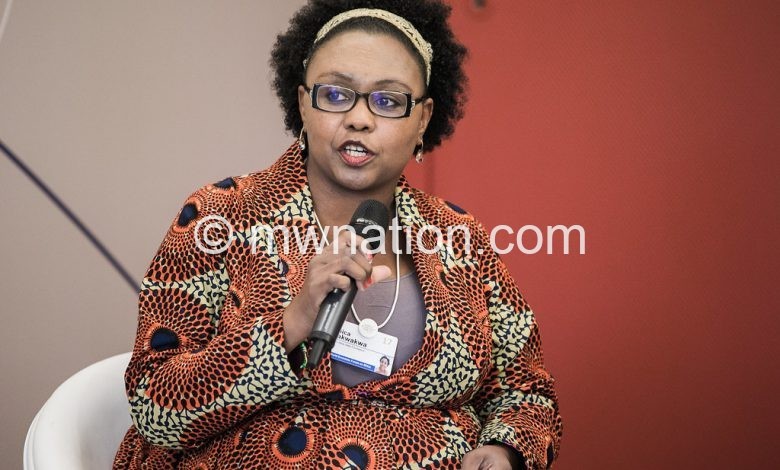Closing digital gender gap
The digital gender gap is still rife in Africa and women are 50 percent less likely to use the Internet for the kind of transformative exercises that men use it for, things like looking for work and online learning courses. In this interview with AfricaCom, Alliance for Affordable Internet Africa regional coordinator Onica Makwakwa discusses how to ensure African women are not left behind in the digital revolution.
You have managed and pioneered various national and international campaigns and policy change processes for women’s rights, civil rights, consumer rights, media and digital transformation initiatives, what inspires you?

Globally, we are in this digital revolution, so it is important for me to make sure that we don’t leave anyone behind. The reasons for leaving people behind could be anywhere from lack of affordability, access, as well as just lack of relevant content for people to be online. So, for me it is about recognising that access to the Internet has the potential to help people transform their lives.
Unfortunately, you will find that a little over half of the world is online right now, in Africa we’re around 40 percent or so. The people who are currently offline are the ones who probably need the connectivity the most from a transformational point of view—be it access to information about health, education, and means of communication. So the question is how do we begin to close those gaps to make sure that we are truly connecting the unconnected, but also connecting them to an Internet that is meaningful, for them to be able to use it to help transform their lives.
Absolutely, and is there correlation between connectivity and gender?
The digital gender gap is quite troubling. It’s important for us to recognise that it’s not necessarily unique. We are importing the same disparities that we have in society to the online platforms, yet online we have an opportunity to really close those gaps. When you look at the current statistics, women are 50 percent less likely to use the Internet for the kind of transformative exercises that men use it for—looking for work, learning courses, etc.
Because the Internet remains unaffordable in Africa, it also means that women are disparately impacted since they for the most part have to worry about bread and butter issues. It’s a choice between paying school fees, feeding their children, or buying data for their phones.
And on the flip side, can “women’s issues” like gender-based violence (GBV) be enhanced by the Internet?
Absolutely, three main things keep women offline: One is affordability. The second is the lack of adequate digital skills for us to utilise the Internet beyond just social media. The third is online GBV. One of the things about the digital gender gap is that the offline disparities also come online. Quite a number of women experience violence online so may opt out of being in online spaces.
We are also seeing a shrinking space for women’s voices online. When you look at content moderation on social media, when women are bullied, that content is not moderated, so the women de-platform themselves. However, when women fight back the bullying online, the platform has content moderation and they begin to censor our voices and take out our posts. In South Africa, women started a movement called #menaretrash as a way to highlight and show examples of trashy behavior exhibited by men online. Today, if you typed #menaretrash on this social platform, you will be censored. Your post will be taken down and you might even be locked out for up to 30 days.
We would like to see this active content moderation when women are being body-shamed, where women are being slut-shamed, when women are being violated in the online spaces. We still have a long way to go, but online GBV is quite troubling because it means that it also has the potential of further widening the digital gender gap where women do not have a safe space to express themselves.
So, education is not only about helping women get online, it’s also teaching men how to build safe spaces and unfortunately teaching women how to protect themselves online?
Exactly the path that we need to take online is to educate on the code of conduct that we all accept for being online, so that we are creating safe spaces for everyone. We don’t want a gendered Internet, but we want an Internet that has gender equality, where we can all exist, and learn, and thrive together.
So, is the process of connecting the unconnected quite gendered in itself?
Yes, the majority of the people who are not connected right now are actually women. One of the things that the World Wide Web Foundation does is conduct national gender scorecards on a few countries in the global south. And there was a time, I think two, three years ago, where that gap was actually widening, largely because women were just opting out of being in this space that is violent and unsafe for them. I think now when you add the complexity of human trafficking, it makes it even more important for us to fight for an Internet that is safe, that is open, that is accessible, and that is affordable for everyone. We are still not getting equal pay, so naturally when things are skewed on the affordability side, we have a greater impact in terms of how we are able to enjoy that facility or not. n
This interview was first published on http://www.connectingafrica.com/ on October 22 2020





